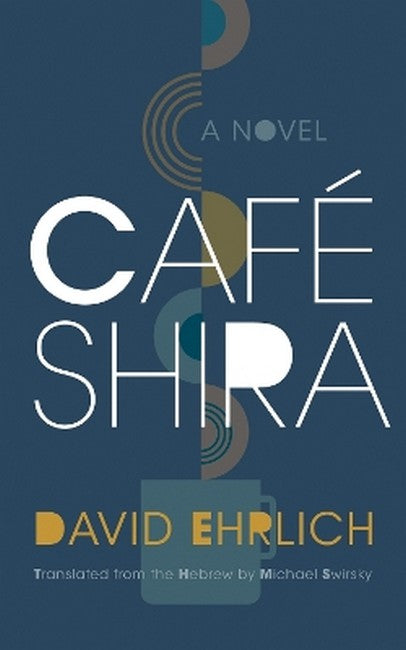David Ehrlich (1959-2020) was the author of three short story collections, 18 Blue, Tuesday and Thursday Mornings, and Who Will Die Last: Stories of Life in Israel. His literary cafe and bookstore, Tmol Shilshom, was a haven for avant-garde artists and writers, and the site of numerous readings by eminent authors. Michael Swirsky is a translator of Hebrew fiction, nonfiction, and poetry. His work has been published by the University of Chicago Press, Yale University Press, Houghton Mifflin, and the Free Press, among others.
Request Academic Copy
Please copy the ISBN for submitting review copy form
Description
In David Ehrlich's contemporary novel Cafe Shira, a literary coffee house located in the heart of Jerusalem becomes a temple for the patrons who frequent it.-- "Foreword Review" An intimate Jerusalem classic, a sweet, sad, lovely little gem of a book.-- "Michael Weingrad, Portland State University" This is a truly remarkable and remarkably successful literary experiment, to 'translate' a cafe into a novel.-- "Naomi Seidman, University of Toronto" A one-of-a-kind book about a one-of-a-kind business in a one-of-a-kind city, Cafe Shira presents a nuanced, humorous, and fascinating picture of humanity set in a renowned cafe in the heart of Jerusalem.-- "Jewish Book Council" Cafe Shira is at once a portrait of inner struggle, yearning, the mysterious synergy of coffee and literary creativity, shifting narrative perspective, playful magical realism (as in the ability of the protagonist Rutha, a waitress in the cafe, to hear her customers' thoughts!), and, above all, love -- together with the loneliness, desire, and fulfillment that surrounds it. Richly imagined and movingly narrated, evocatively and crisply translated, this is a beautiful book to be treasured and savored!-- "Eitan Fishbane, author of Embers of Pilgrimage: Poems, The Art of Mystical Narrative, and Shadows in Winter" David Ehrlich's Cafe Shira places us somewhere we think we know, but don't, with strangers we feel we can't know, but do. People afflicted with Eros, ambition, daydreams, conventions--people resenting sisters, or lovers, or mirrors; people trying to find happiness and worried about trying too hard. Jerusalem, under Ehrlich's hand, is comfortably exotic. But no more consequential than the cafe's salads, notebooks, and tips. A quiet masterpiece.-- "Bernard Avishai, author of The Hebrew Republic"

